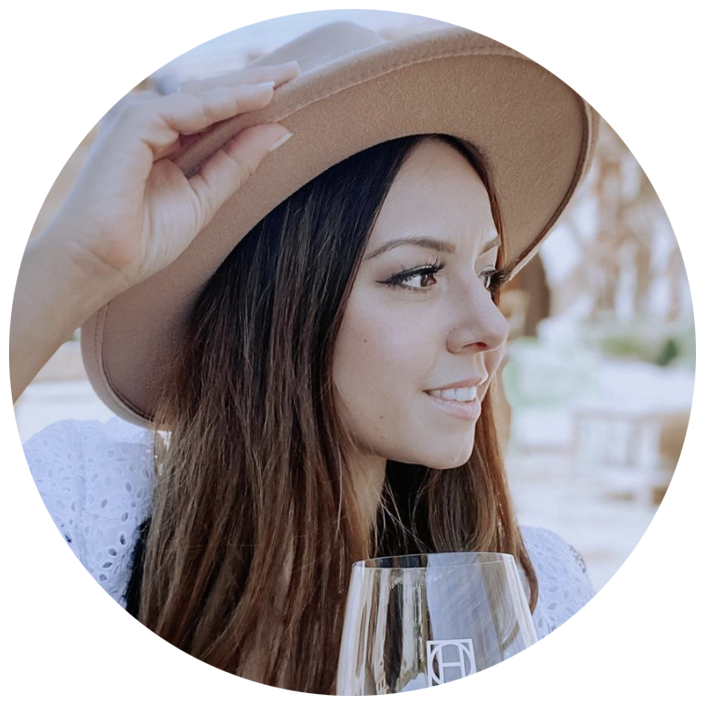
When you go wine tasting, do you look for sustainable wineries? I do, but it can be confusing knowing which wineries are dedicated to sustainability.
[Please note that while this blog post sponsored by SIP Certified, all views are my own and I elected to visit these wineries to learn about their sustainable practices.]
SIP Certified makes finding sustainable wine, wineries and vineyards easy – just look for their logo. SIP Certified provides an intense third-party verification that a vineyard, winery or wine has implemented sustainable practices across the 3 P’s of Sustainability – People, Planet, Prosperity.
During February, if you are a wine club member at SIP Certified Winery, you can get complimentary tastings at other participating wineries for ReSIProcal February. There are wineries participating in Monterey County, Santa Barbara County, Madera County, San Luis Obispo County and even 3 wineries in Michigan! Check out the complete list of participating wineries.
I’m a wine club member at Scheid Vineyards so I decided to visit the 3 Monterey County SIP Certified Wineries for ReSIProcal February. (Scheid has two locations, which brings the total participating locations in Monterey up to 4.)
My first stop during ReSIProcal February was my “home” winery of Scheid Vineyards. It’s the wine club I’ve been a member of for the longest. I wasn’t able to make it to their location in Greenfield this February, but I visited their Carmel location.


Scheid Vineyards – Wind Powered Wine
Scheid Vineyards is firmly committed to sustainability, and their winery in Greenfield is powered by wind.
One of the things I love about Scheid is their selection of wines, as they have grape varietals that are less common in Monterey County, including Cabernet Sauvignon, Barbera and Merlot. They of course have Pinot Noir and Chardonnay as well, which are the wines Monterey Wine Country is best known for.
Scheid makes several single clone Pinot Noirs which can be an enjoyable tasting if they happen to be open when you visit.


McIntyre Vineyards – Sustainable Winery Using Biochar in their Vineyard
On a rainy day, my second stop during ReSIProcal February was McIntyre Vineyards in the Carmel Crossroads. I think wine tasting on a rainy day is very cozy and a great indoor activity.
McIntyre was founded by Steve McIntyre, who was also one of the originators of the SIP Certified program. They have a strong commitment to sustainability, and last year they started incorporating Biochar, made from agricultural waste, into their vineyards to try to improve the soil. I’ll be interested in seeing updates on the progress of that project.
McIntyre specializes in Pinot Noir and Chardonnay but also produces other wines, including Merlot and a wine made from the German grape Dornfeld. I’ve never had Dornfel before and was excited to try it.


CRU Winery – Winery that Only Purchase Grapes from Sustainable Vineyards
My final stop during ReSIProcal February was CRU Winery‘s Santa Lucia Highlands tasting room. It’s the furthest south of the tasting rooms on River Road, so I don’t always make it out there, but I was on a mission to try all 3 wineries in Monterey participating in ReSIProcal February.
CRU Winery is located atop a hill and has beautiful views of the Salinas Valley. They also have a demo vineyard outside their tasting room, which is pretty during the summer and fall. It’s also an excellent opportunity to take vineyard photos without actually having to leave the tasting room.
CRU is dedicated to sustainability and only sources grapes from vineyards that are certified sustainable by either SIP Certified or CCSW.
What I like about tasting at CRU Winery is that they source their Pinot Noir from vineyards all over California, so you can taste the difference in terroir in different regions.
I always enjoy their single vineyard Santa Lucia Highlands Pinot Noir, but this time I had the opportunity to taste a Pinot Noir from the Santa Cruz Mountains from the Regan vineyard. I am very familiar with this vineyard from when I was a member at Bargetto Winery and it was fun to try a Pinot Made by a different winery from the same vineyard.
If you want to go on a sustainable wine tasting journey during ReSIProcal February, check out the list of participating wineries. Always remember to taste responsibly!



